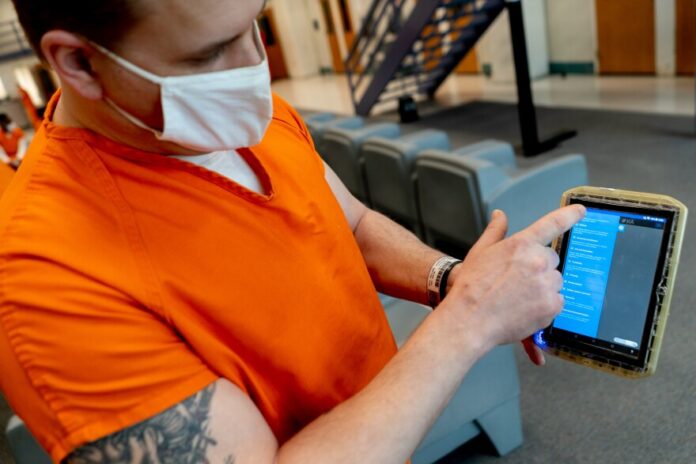The Minnesota Department of Corrections (DOC) promised that all inmates would receive prison-approved tablets by the end of 2024, but so far, less than 30% have them.
Back in November 2024, DOC spokesperson Aaron Swanum said free tablets would start being handed out in December. A small test rollout did begin at two facilities, but it was quickly delayed. According to DOC Commissioner Paul Schnell, the delay happened because the devices didn’t meet state accessibility rules and there were other unexpected challenges.
In a June statement, Schnell acknowledged the issues but didn’t give a clear timeline for when the tablets would be available to everyone.
Shannon Loehrke, the DOC’s Director of Communications, said the department still plans to give tablets to every inmate who wants one. But family members and prisoner advocates say the delay is unacceptable. They argue that these tablets are more than just entertainment — they help inmates stay in touch with loved ones through email and provide some relief by allowing access to music and games.
Advocates say this problem has been building for years.
Dontania Petrie, who was incarcerated at the Shakopee Correctional Facility from 2017 to 2020, recalled being told in 2018 to stop buying music on her tablet. At the time, officials said the DOC planned to switch to a different provider, and she would lose access to her purchased content.
That warning came true years later. In 2023, the DOC officially stopped using JPay, the original tablet provider, and moved to ViaPath Technologies. But the full transition still hasn’t happened — leaving many inmates without working tablets.
As of August 2025, only 28% of Minnesota’s prison population — around 2,240 people — have working tablets, according to the DOC. The tablets allow users to send and receive emails, play games, and listen to music.
For many families, this access is essential.
Brandy Earthman, a member of the Minnesota Incarcerated Workers Organizing Committee, said the tablets are a lifeline for her son, who is incarcerated at Rush City Correctional Facility.
“It’s a way for them to stay connected to us — to a world that too often forgets them,” she said during a recent press conference.
Now, with the DOC’s contract with ViaPath coming to an end, the department is looking for a new provider. But finding one takes time, because state rules require a formal process called a Request for Proposal (RFP), which Schnell described as “long and complicated.”
In the meantime, inmates are stuck. They can’t buy new tablets, and they can’t repair the old ones. If a tablet breaks, it’s simply taken away, with no replacement offered. According to Loehrke, broken JPay tablets “are not repairable and should be removed.”
Only inmates involved in education programs approved by the DOC have access to tablets or computers for learning. Those not in school or treatment programs are left with little to do.
Petrie, now studying law and working as a prison reform advocate, says access to tablets makes a huge difference in prison life.
“These tablets help keep people in line,” she said. “If you’re not in school or treatment, there’s nothing else to do in there. Having music or being able to send a message to your family — that matters.”
Advocates are continuing to push the DOC to speed up the process and make digital access available for all inmates, saying the delay is hurting families and adding unnecessary stress to the lives of incarcerated people.


